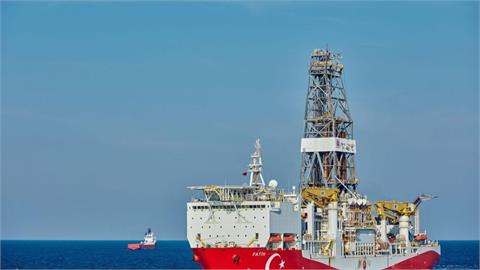"Turkey’s actions and they way the Cypriot government and the Western world, in general, has responded to these actions will be a significant factor in determining the climate for investment in the waters around Cyprus,” Energy analyst John Roberts told New Europe on the sidelines of the Delphi Economic Forum on March 2.
"What it means, is that it is for the Turkish government to decide how far it is prepared to go with either the threat or the use of force rather than resorting to diplomatic approaches, because it has to weigh its physical activity to prevent actions with the rest of the world and fully consider the legal ramifications against its own difficult relationship with its allies in NATO,” Roberts added.
While at Delphi, Rhode Island State Senator Leonidas Raptakis, who is also a geopolitical energy consultant, asked, "If NATO and the United States cannot take the lead to reprimand Turkey and its leaders, then what’s the sense of having NATO?”
In comments to New Europe Raptakis added, "I call upon the Trump Administration, the US Congress and also NATO and the EU because it’s an embarrassment that you have Turkey making threats to Greece and Cyprus, especially on the Greek islands, on the energy block issue on Cyprus,” adding, "It’s unacceptable. You cannot have a NATO nation, an EU partner, threatened by a non-EU partner. And where is the European Union in standing up to protect its energy rights? They should have sent a strong warning to (Turkish President Recep Tayyip) Erdoğan and every other Turkish leader that makes these daily threats on Cyprus and in Greece, but mainly on the energy issue.”
Raptakis said the Cyprus blocks, including Block 10 where US energy giant ExxonMobil is expected to start the first phase of its exploratory drilling, open up a future for European energy security. "That’s one key component there because Europe is going to need the energy from Cyprus,” he said.
Constantinos Filis, Research Director at Institute of International Relations, told New Europe on March 2 in Delphi that "Turkey is not going to intervene in any way” on Block 10.
Regarding the promising Block 6, Filis said Ankara claims that it lies within it continental shelf and is expected to take some preemptive actions. "But it seems unlikely it would make an all-out effort to block the activities of the joint venture between Total and ENI,” he said.
"Turkey is faced with an inconvenient reality: on the one hand, Cyprus’ EEZ delimitation agreements with neighbouring countries and, on the other, the involvement of big companies in the bids for Nicosia’s energy blocks. Both developments have created an environment that does not serve Turkish interests”.
Regarding the recent incident with ENI’s floating rig in Block 3, Filis opined that Turkey is not in a position to define the course of events. "Its objective is to not be ignored and also to create a climate of uncertainty if it is ignored, by threatening to cancel explorations. But the fulfilment of its aims depends on whether other involved parties – including Egypt and Israel, but also the EU – who have an interest in seeing the Eastern Mediterranean become a new source of supply as well as a supplementary alternative to Russian gas for the European market — can join diplomatic forces,” Filis said.
Filis noted that the companies are used to doing business in more fragile or volatile environments than that of the Eastern Mediterranean and taking corresponding risks. At the same time, they cannot stand for long delays, as they need to recoup their investments.
For now, Filis said, the more challenging issues that will define the fate of the Eastern Mediterranean’s ability to produce and export its energy sources is not Turkey’s counterproductive stance, which can be tackled through a united front, but rather the price of oil, since the break-even for developing the regions’ hydrocarbons seems to be between $65 and $70 per barrel, due to the depth of the offshore fields as well as the competition – both in pricing and due to the emergence of new players.
by Kostis Geropoulos - Energy & Russian Affairs Editor, New Europe
https://www.neweurope.eu/article/turkish-pressure-throws-eu-east-med-energy-projects-limbo/



